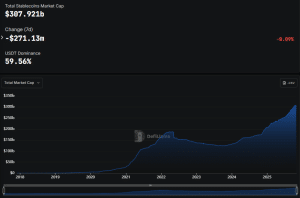Automobile manufacturers are increasingly concerned about a shortage of basic microchips, resulting in production delays. According to reliable sources, the issue began this week at Honda’s factories in North America and is anticipated to impact other carmakers globally.
This was after the global car industry raised concerns about the impacts of Nexperia, a semiconductor manufacturer based in the Netherlands, following its move to halt shipments from China earlier this month.
Sources have pointed to political instability between the Dutch, Chinese, and US governments as a potential cause of this problem, which has left some car makers and parts suppliers with only a small amount of chips, likely to be depleted.
The microchip shortage follows pressure to force the sale of Nexperia’s microchip plant in Stockport, after senior politicians cautioned that the UK is exposing itself to national‑security risks by permitting Chinese ownership of the site.
The plant, based in Greater Manchester, stands as one of the UK’s largest semiconductor manufacturing facilities, generating £192 million in revenue last year.
Lawmakers have warned that keeping control in the hands of a company ultimately owned by a Chinese tech conglomerate poses national security concerns, including potential interference, access to industrial data, and leverage over a critical segment of Britain’s supply chain.
The renewed scrutiny follows the Dutch government’s invocation of emergency powers earlier this month to seize control of Nexperia’s headquarters in the Netherlands.
Honda reduces productivity amid escalating scarcity of Nexperia’s chip
Although Nexperia does not manufacture advanced semiconductors, sources identified that it plays a significant role in the market for the production of basic chips used in many car parts.
Industry executives and analysts have warned that a heavy reliance on these chips makes it difficult to find sufficient replacements if shipments do not resume soon.
Regarding the situation, Håkan Samuelsson, Chairman of the Executive Board of Volvo Cars Corporation AB, stated, “These components are not very strategic, but there are hundreds of them, including tiny microprocessors in lock systems, climate controls, speedometers, among others.” Samuelsson made these comments during a recent interview.
His remarks followed reports from sources indicating that Honda had reduced productivity by half at its assembly plant in Alliston, Ontario. Notably, in this assembly, workers manufacture the Civic sedan and the CR-V SUV.
Honda’s move prompted Vito Beato, president of Unifor Local 1285, to predict that the slowdown will continue through next Wednesday. Unifor Local 1285 represents workers at a supplier for the assembly plant in Alliston, Ontario.
Following his prediction, Beato shared a video on Facebook mentioning that the plant will shut down for a week starting Thursday and then gradually restart production late next week.
When reporters requested a spokesperson from Honda to comment, the representative acknowledged that the company is facing a significant challenge in the semiconductor supply chain, impacting the industry.
To ensure that its operations run smoothly, the spokesperson pointed out that Honda is making careful adjustments to manage the parts it has.
Analysts warn that Nexperia might end up on a trade blacklist
This week, Honda began implementing changes, including temporary production suspensions, at its major auto factories in North America.
The situation highlights a growing threat to the automotive industry. It comes in as US President Trump visits Asia for a meeting with his Chinese counterpart, Xi Jinping. Nexperia came into the spotlight after the Dutch government seized control of the chip maker amid a warning from American officials.
According to a Dutch court document, the relevant authorities stated that unless Nexperia’s Chinese CEO is replaced, the company could end up on a trade blacklist due to national security concerns. Dutch Economy Minister Vincent Karremans stated that no other nation influenced the decision to acquire Nexperia.
If you’re reading this, you’re already ahead. Stay there with our newsletter.
Source: https://www.cryptopolitan.com/automakers-hit-by-deep-nexperia-chip-crunch/


